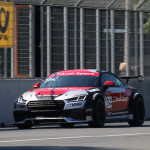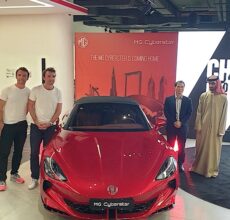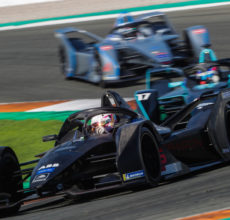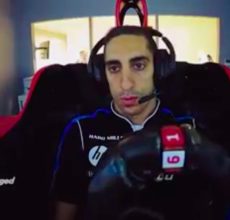In this goodbye feature to 2016 Formula E, I’m squeezing the last drops of fun, learning and interesting facts out of the backstage talks that followed the final race of Formula E, earlier this month. Content and image courtesy: CNN Supercharged
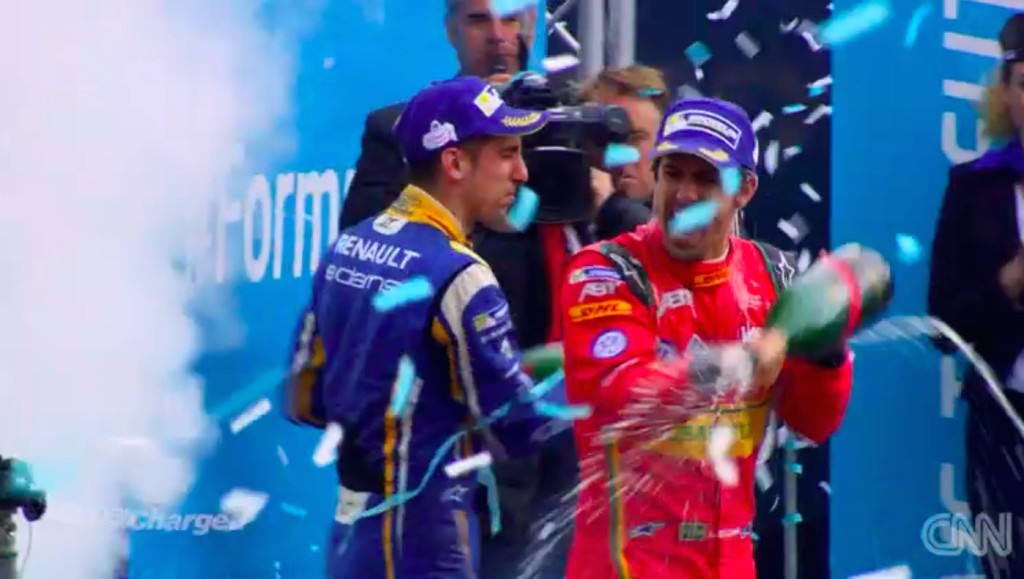
The top two racers celebrating with champagne
Sebastien Buemi is the new Formula E world champion and both the Renault fellas together claimed the Constructor’s title. The last race was something like the penalty shootout in a football game. With the two lead horses being separated by just one point, the Formula E champion was ironically determined by the two points awarded for the fastest lap in the final race. While that may seem unfortunate and unfair, as Lucas di Grassi voiced, it seems to be fair game as they both were earlier involved in an accident that led to both the drivers having to switch to their alternative cars. Watch the accident where the two championship drivers “limp back” to the pits with Di Grassi holding out his wounded wheel spinning like a propeller.
Formula E face-off: Buemi vs. Di Grassi http://cnn.it/29EFktw
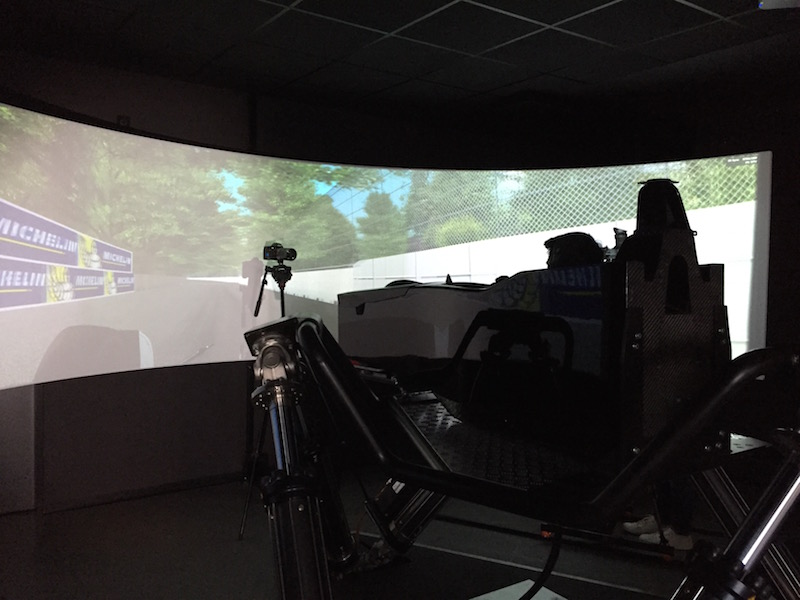
The racers have to depend a lot on advanced simulators as the City based track doesn’t allow much real-world practice!
Anyway, Lucan di Grassi acknowledges that Sebastien Buemi was the fastest driver for most part of the race, as he has a faster car – a fact he makes a sour point of, which in turn, Sebastien Buemi disparagingly alludes to. Watch that too in the video.
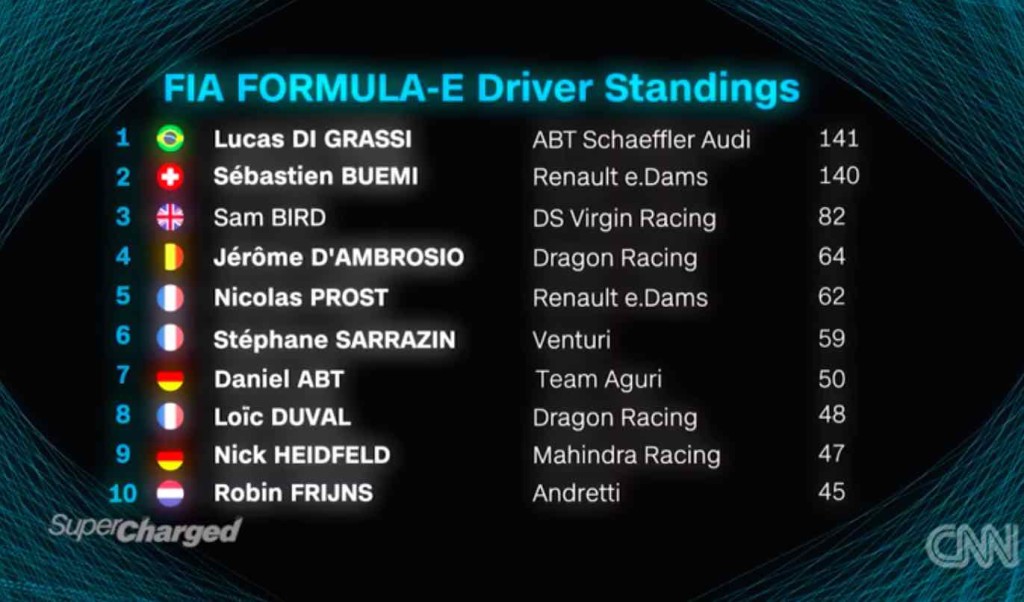
The one point difference at the start of the grid was levelled by the start of the last race with the fastest lap playing the tie-breaker.
There is an interesting catfight between the two top dogs to follow. It’s fun. Then there are some lessons for your next outing on the track. Sebastien Buemi clearly has been a master at overtaking, the way he shot from eighteenth position in the grid to the second in Argentina. Now, the boss of jumping the line tells us how to do it. Pay attention.
Find the tips in the second half of the video http://cnn.it/29EFktw
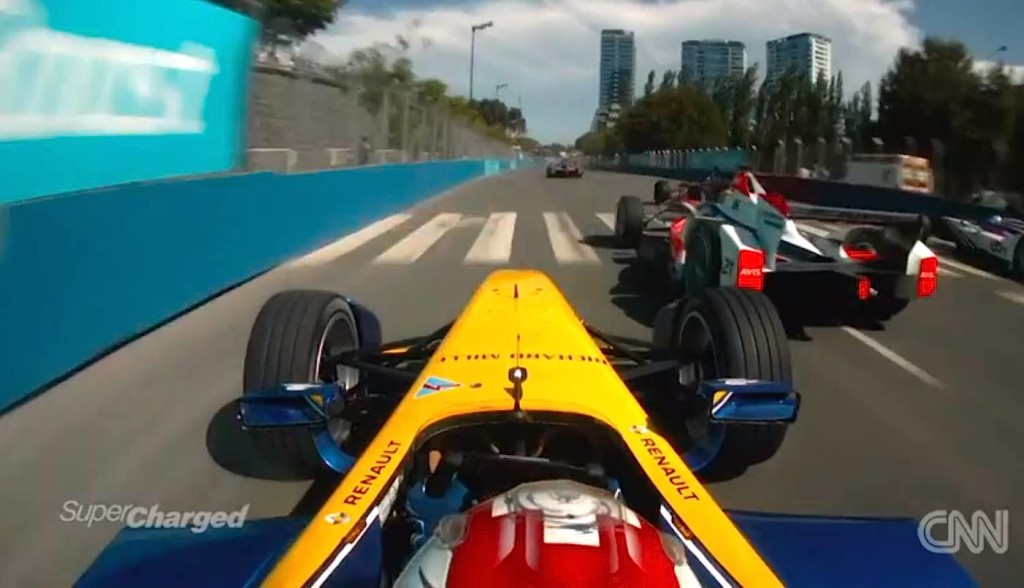
Converting a city centre into a racetrack: How do they do it!
Challenges as amazing as the narrow city roads and squeezed out corners in a Formula E race are the ones faced by the organizers. They have to put up a whole racing circuit in the heart of the city, in around 8 hours. This includes, 7 to 8 km of walls and fences and almost 30 km of cables for television, timing, race control and all that – without stopping the traffic in some of the big cities of the world!
Formula E: Building a race track from scratch http://cnn.it/29E5OtU
How do they do it especially given that the whole stuff adds up to about 200 tonnes including 41 cars? Besides the car boxes, everything is packed into specially designed pods, or small houses, that are suitable for transport by land, air or water. Each can carry up to 3500 kgs.
Being an electric race charter, Formula E ought to be mindful of the carbon footprint it leaves behind while going around the world. Of course evading it totally is out of question but they cover the route optimally by zones, and use electric forklifts etc. to manage the energy resources for loading and unloading. The remaining CO2 figures are offset by buying carbon credits.
Electric cars, electric trains, electric forklifts … thankfully there are many everyday elements that stay true to the equation of the all-electric Formula race.


